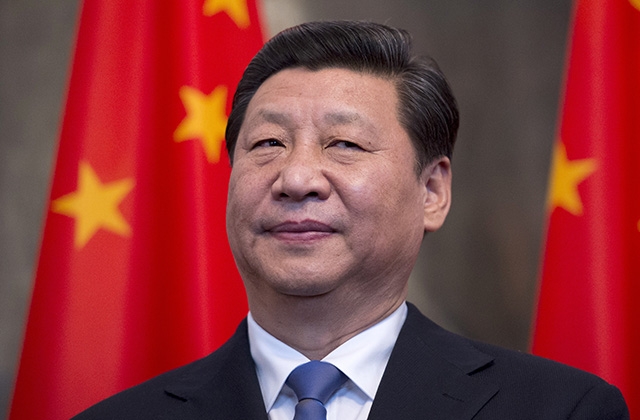

 President Xi Jinping’s Decision to Skip the G20 Summit Raises Questions About China’s Evolving Global Strategy
President Xi Jinping’s Decision to Skip the G20 Summit Raises Questions About China’s Evolving Global Strategy
When the world’s most powerful leaders gather in New Delhi this weekend to address the numerous global crises, there will be a notable absence – China’s Xi Jinping.
This marks an unprecedented move, as Xi has never missed a G20 summit since taking power in 2012.
The lack of explanation from Beijing has led to widespread speculation, ranging from Xi’s potential health issues to diplomatic tensions with host country India.
However, some experts suggest that his absence reflects China’s shifting perspective on the existing global governance system, particularly its perceived dominance by the United States.
China has historically considered the G20 as a neutral platform for global governance and placed great importance on G20 diplomacy.
From its first leaders’ summit in 2008, China’s top leader has always attended, even participating via video link during the Covid pandemic.
When China hosted its inaugural G20 summit in 2016, it spared no effort to showcase its growing influence on the world stage.
However, in recent years, relations between China and the United States have become increasingly strained, leading China to view the G20 as leaning more towards the U.S. and its agenda.
Around half of the G20 member nations are U.S. allies, a stance reinforced by the Biden administration’s push for a tougher stance against China.
Moreover, Beijing now interprets tensions with other G20 members, such as the border dispute with India, through the lens of its challenging relationship with the United States.
Beijing has been particularly critical of India’s growing ties with Washington, particularly its participation in the Quad, a U.S.-led security grouping that China sees as an “Indo-Pacific NATO”, only furthering the already strained China-India relations.
The ongoing conflict in Ukraine has also cast quite a long shadow over the G20 summit.
In March, the Chinese president traveled to Moscow to meet Russia’s Vladimir Putin – an “old friend” who shares his deep distrust in American power.
Last month, he attended the BRICS summit of emerging nations in Johannesburg, where the bloc announced the admission of another six new members.
China’s refusal to condemn Russia’s invasion and its continued support for Moscow have only heightened tensions with the West.
According to Jake Werner, a research fellow at the Quincy Institute, “China has said that it thinks the G20 should be limited to economic discussions.
It shouldn’t be politicized around the geopolitical fault lines that the United States and the Europeans want to push.”
Chinese analysts concur that Beijing may now view the G20 as having diminishing value and effectiveness.
Instead of the G20, Xi appears to be prioritizing multilateral forums that align with China’s vision of “global governance”.
For instance, China recently concluded the BRICS summit and is preparing for the Belt and Road Forum, obviously tilting their strategy to the countries more aligned with them economically.
These forums, as well as other initiatives like the Shanghai Cooperation Organization, hold an elevated status in China’s rapidly evolving global strategy.
George Magnus, an economist and associate at the China Center at Oxford University, believes these entities serve as alternative structures to those traditionally joined by China, which often shared the limelight with the United States.
Magnus noted, “It’s also sending a message to the rest of the world – not just Global South countries but also wavering countries in the liberal democracy world – that this is China’s pitch.”
Obviously, Xi Jinping’s absence from the G20 summit signifies a major shift in how China views global diplomacy.
As China continues to assert itself on the world stage, it seeks alternative platforms and structures that align more closely with its vision of global governance.
The G20, once a cornerstone of China’s diplomatic efforts, may no longer serve its evolving interests in an increasingly complex geopolitical landscape.
Read the original story here:
CNN


